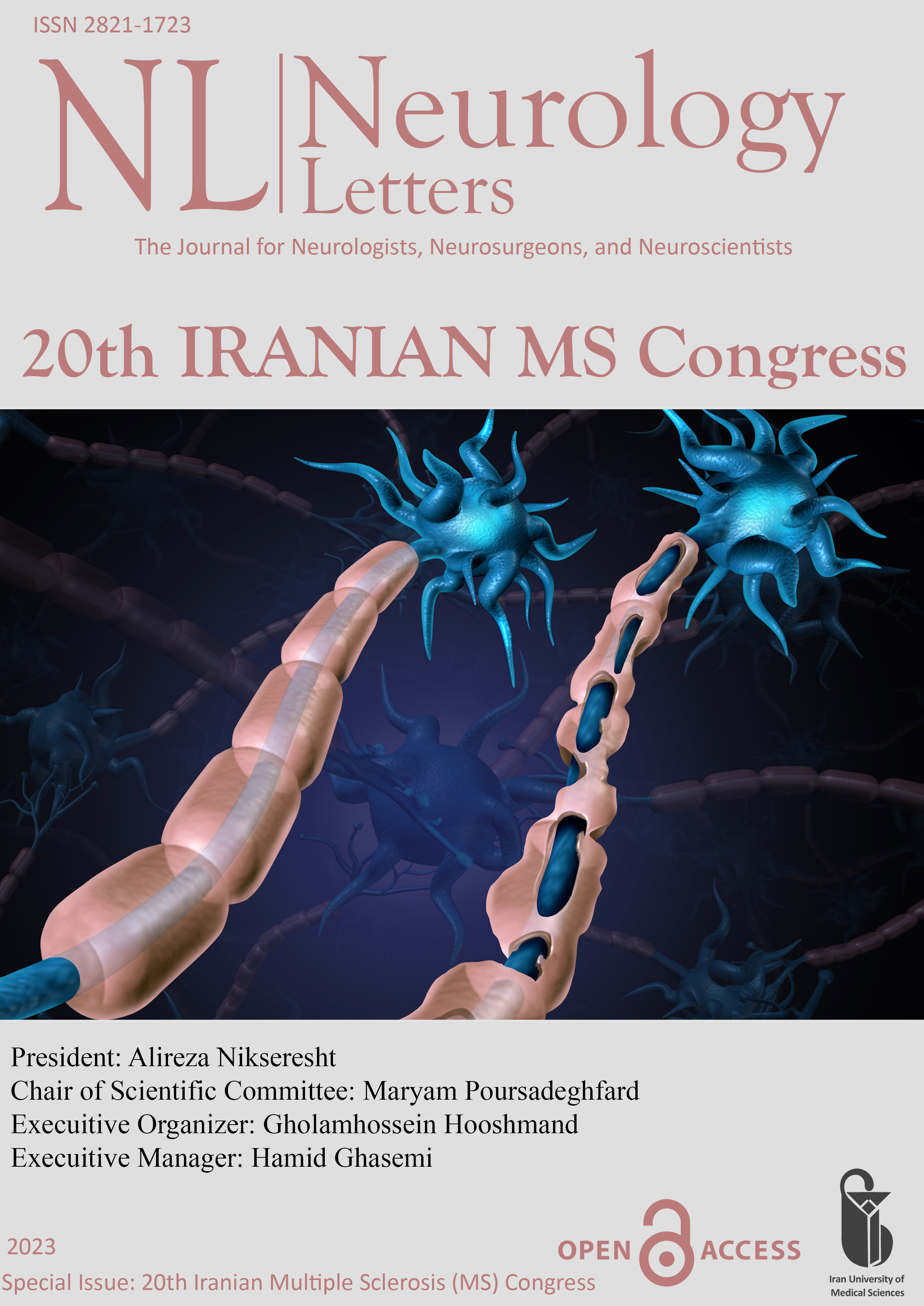The role of Artificial Intelligence in cognitive impairment assessment by MRI in people with MS (Iranian Research) (ORP-09)
Document Type : Oral Presentation
Authors
1 Faculty of Computer Science and Engineering, Shahid Beheshti University, Tehran, Iran
2 Clinical Neurology Research Center, Shiraz University of Medical Sciences, Shiraz, Iran
Abstract
Artificial intelligence (AI) is increasingly gaining attention in the field of medicine, particularly in the context of neurological diseases such as multiple sclerosis (MS). AI methods have proven effective in organizing, analyzing, and extracting valuable insights from complex and extensive datasets encompassing clinical records and medical images. This capability has facilitated the identification of subtle markers of disease, leading to enhanced early diagnosis and a deeper understanding of disease variability and progression. Consequently, healthcare professionals can optimize treatment strategies, ultimately enhancing the quality of life for people with MS (PwMS). Cognitive impairment (CI) is a common occurrence among PwMS and is associated with an elevated risk of disease progression. Magnetic resonance imaging (MRI) is widely considered the gold standard for diagnosing MS. Numerous studies have utilized various MRI types, including functional MRI (fMRI) and diffusion tensor imaging (DTI), as inputs for AI models. Research indicates that integration of demographic information, clinical data, and results of Brief International Cognitive Assessment for MS (BICAMS) and Paced Auditory Serial Addition Test (PASAT) with medical images yields promising performance. In our study, with the aim of presenting a structured overview of relevant research based on AI applications, we organized them into three categories: "utilizing AI algorithms in statistical methodologies", "employing AI for analyzing or segmenting brain imaging results", and "developing novel AI-based methods for evaluating specific cognitive phenomena". In the realm of "Utilizing AI techniques in statistical methodologies", researchers concentrate on applying AI algorithms, such as diverse regression models, to explore the relationships among clinical variables. In a study aimed at discerning the relationship between cognitive measures and the thalamus in fingolimod-treated relapsing-remitting MS (RRMS) patients and healthy controls using ultra-high-field MRI, they employed a mixed-effects linear model. This model was utilized to investigate the relationship between MRI parameters—such as thalamic volume, thalamic myelin density, thalamic axon density—and neuropsychological test performance over time, providing an example within this category. In the domain of "utilizing AI for analyzing brain imaging results", AI models, particularly deep learning (DL) models, assume a crucial role in segmenting and analyzing brain imaging results, helping to offer a comprehensive evaluation of cognitive impairment in MS. Various models, including convolutional neural networks and other emerging DL-based models, are utilized for tasks ranging from assessing specific cognitive phenomena to studying brain networks and analyzing MR images. These models excel in discerning intricate patterns and structures within medical images, facilitating automated and accurate identification of lesions and other pertinent features in MRI scans. Researchers in the category of "developing innovative AI-based methods for evaluating specific cognitive phenomena", propose a novel approach for the early diagnosis of cognitive impairment. The method utilizes a machine learning (ML) system with feature selection to analyze cognitive task-related fMRI data and graph-theoretical measures. Central to this approach is a linear support vector machine (SVM) classifier, a widely used AI-based supervised ML technique in neuroimaging applications. AI plays a crucial role by enabling the system to effectively classify MS and healthy subjects. The SVM classifier leverages AI's capability to discern patterns and relationships within the data, contributing to the automation of the diagnosis process. Overall, AI empowers the study by enhancing accuracy through automated data analysis and pattern recognition. Examining all pertinent studies reveals that AI methodologies have the potential to help in CI assessment among PwMS. As a result, further research efforts can propel and sustain advancements in this field.
Keywords
 Neurology Letters
Neurology Letters
